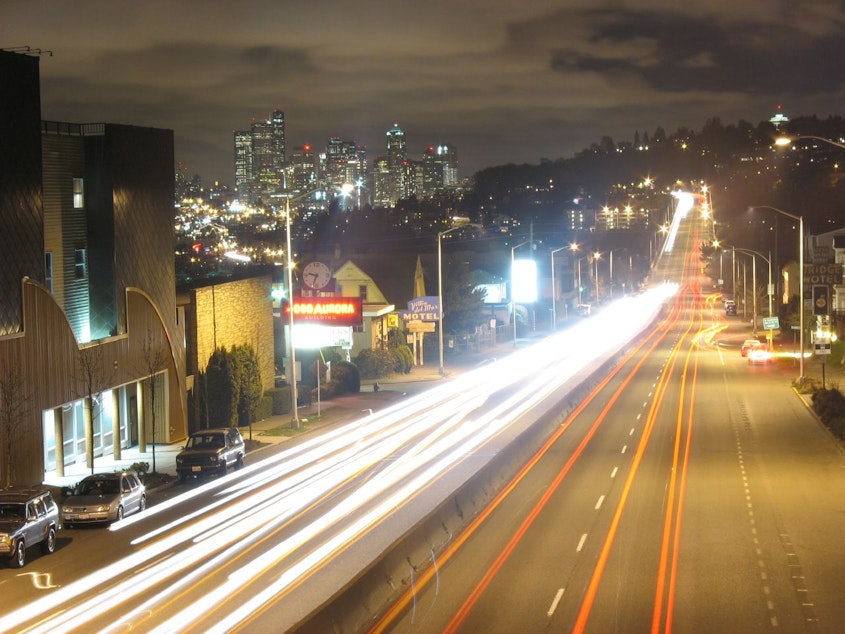Study: Spending On Sex Trade Way Up In Seattle

A new study finds spending on the underground sex trade in Seattle has gone way up. Of the cities studied, Seattle is one of only two where spending increased, and it’s not pennies: $50 million in 2003 to $112 million in 2007.
The Urban Institute, funded by the Department of Justice, used extensive, empirical-based research to look at the underground commercial sex economy in seven cities.
Lead researcher Meredith Dank said they didn’t set out to find out why, just how much people spend on adult prostitution and sex trafficking. But the people she interviewed speculate that it could be because Seattle fared better than other cities in the economic downturn.
She said the study verifies some information law enforcement and advocacy groups already knew anecdotally: Pimps use psychological manipulation to coerce their victims, and it starts with recruitment.
Dank herself went into prisons across the country and interviewed 73 convicted pimps.
“They say, ‘I love you, if only you could do this one thing for me.’ And then that followed through the actual control and exploitation,” Dank said. “They would continue to use this as a way of holding and retaining their ‘employees’ by saying that if only you could do this for me, I’d love you even more.”
The pimps also used these tactics to play their girls off of one another, according to Dank. For example, the one who earned the most one night would get to spend the evening with him.
Sara Lerner on KUOW's The Record:
Dank said it’s important to understand the nuances involved. The pimp-victim relationship isn’t just about using violence as a means of control. Instead, pimps in cities all over the U.S. told similar stories about keeping victims in line with highly advanced mind games.
What was it like to interview nearly 100 convicted pimps? Surprising, Dank said. “We were prepped by law enforcement and other stakeholders that these individuals are calculating, they won’t give you the whole story. They’ve got large egos and they’ll pump themselves up.”
But, she said, it was quite the opposite.
“They were quite candid. And another thing, no way would I justify what they did, but I noted that quite a number of them expressed remorse,” Dank said. “Some even said they couldn’t believe they’d done that to another human being. Some even said they deserved the time they got.”
Through the research study, Dank also discovered that Asian residential brothels are unique to the Puget Sound area. She said they offer a discreet option to draw a richer clientele who don’t want to walk into a strip mall store with a flashing “massage parlor” sign.
The study found that law enforcement still wants to learn more about them but doesn’t necessarily have the resources. Agents do know the money is largely being sent back to Vietnam, Korea and China.
